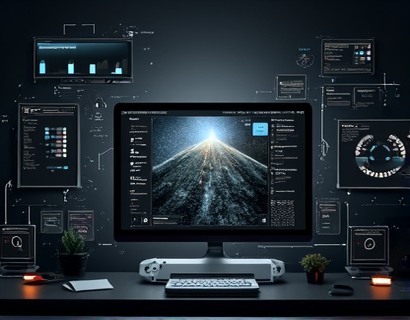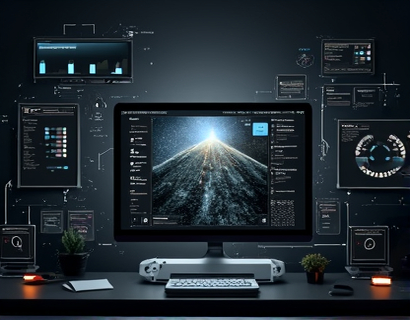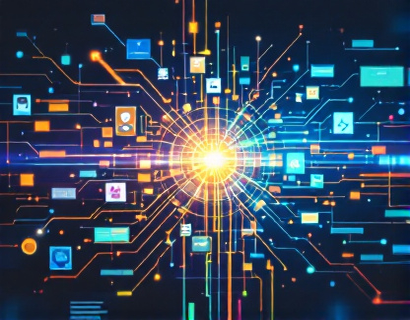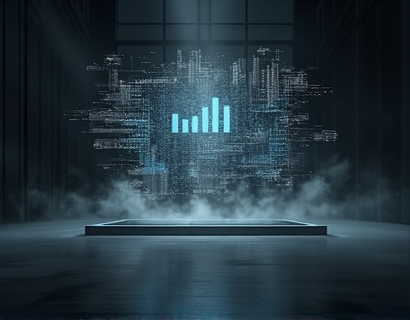AI-Driven Life Management: Empowering Productivity with Intelligent Personal Insights
In the fast-paced world of today, managing personal and professional life efficiently is more challenging than ever. The integration of Artificial Intelligence (AI) into life management tools offers a revolutionary approach to enhancing productivity and simplifying daily tasks. An advanced AI-driven personal assistant stands out as a game-changer, providing intelligent insights and tailored guidance to help individuals streamline their decision-making processes, manage tasks more effectively, and achieve their goals with greater ease. This article delves into the transformative potential of such technology, exploring how it can elevate productivity and simplify life.
The core functionality of an AI-driven personal assistant revolves around understanding and predicting user behavior, preferences, and needs. By leveraging machine learning algorithms, these tools analyze vast amounts of data to offer personalized recommendations and insights. This capability allows users to make informed decisions quickly, reducing the time spent on deliberation and increasing overall efficiency. The assistant acts as a trusted advisor, always ready to provide guidance on various aspects of life, from managing a busy schedule to making strategic career decisions.
Intelligent Insights for Informed Decision-Making
One of the most significant benefits of an AI-driven personal assistant is its ability to provide intelligent insights. These insights are not just based on random data but are derived from a deep analysis of user patterns, historical data, and real-time information. For instance, when faced with a decision, the assistant can evaluate multiple scenarios, weigh the pros and cons, and suggest the most optimal path forward. This feature is particularly useful in complex situations where human judgment might be clouded by emotions or biases.
Consider a professional scenario where an individual needs to decide between two job offers. An AI assistant can analyze factors such as salary, job responsibilities, company culture, and long-term career growth potential. By presenting a comprehensive overview, the assistant helps the user make a well-informed decision that aligns with their personal and professional goals. This level of insight not only saves time but also reduces stress, allowing individuals to focus on what truly matters.
Enhanced Task Management and Organization
Effective task management is crucial for maintaining productivity and achieving goals. An AI-driven personal assistant excels in this area by offering sophisticated tools to organize and prioritize tasks. The assistant can create custom schedules, set reminders, and even anticipate upcoming deadlines based on past behavior and project timelines. This proactive approach ensures that users never miss an important date and can manage their time more efficiently.
Moreover, the assistant can integrate with various productivity apps and tools, creating a seamless workflow. For example, it can sync with calendar applications, to-do list managers, and project management software to provide a unified view of all tasks and responsibilities. This integration eliminates the need to switch between multiple platforms, reducing cognitive load and increasing focus. Users can thus maintain a clear overview of their tasks and allocate their time and resources more effectively.
Dynamic Prioritization and Time Management
Prioritizing tasks based on urgency and importance is a skill that can significantly boost productivity. An AI-driven personal assistant takes this a step further by dynamically adjusting task priorities based on real-time data and user preferences. For instance, if an unexpected urgent task arises, the assistant can re-evaluate the current schedule and suggest the best way to accommodate the new task without disrupting the overall plan. This adaptability ensures that users remain on track, even in unpredictable situations.
Time management is another critical aspect where AI can make a substantial difference. The assistant can analyze how time is spent throughout the day and identify patterns or inefficiencies. Based on these insights, it can propose optimized schedules and time-blocking strategies to maximize productivity. For example, it might suggest dedicating specific blocks of time to deep work, minimizing distractions, and ensuring that high-priority tasks receive the attention they deserve. This approach not only helps in completing tasks more efficiently but also reduces burnout by promoting a balanced work-life rhythm.
Supporting Personal and Professional Goals
Achieving personal and professional goals requires clear planning, consistent effort, and regular evaluation. An AI-driven personal assistant provides a comprehensive framework to support these objectives. By setting and tracking goals, the assistant helps users stay focused and motivated. It can break down long-term goals into manageable milestones, providing a roadmap for success. Regular check-ins and progress reports ensure that users remain on track and can make adjustments as needed.
For personal development, the assistant can recommend resources such as books, courses, and workshops based on the user's interests and goals. It can also track progress in these areas, offering encouragement and insights into areas that need more attention. In a professional context, the assistant can help identify skill gaps and suggest training programs or networking opportunities to bridge these gaps. This holistic approach ensures that users are continuously growing and improving, both personally and professionally.
Customized Recommendations and Feedback
One of the most powerful features of an AI-driven personal assistant is its ability to provide customized recommendations and feedback. By understanding the unique context and preferences of each user, the assistant can offer tailored advice that resonates more effectively than generic suggestions. For example, if a user is struggling with time management, the assistant might recommend specific techniques or tools that have proven effective for individuals with similar challenges.
Feedback is another critical component. The assistant can analyze performance data and provide constructive feedback to help users improve. This could include insights into productivity patterns, areas for improvement, and strategies to overcome obstacles. Regular feedback loops create a continuous learning environment, enabling users to refine their approaches and achieve better results over time.
Building a Smarter, More Organized Life
The integration of AI into life management tools transforms the way individuals approach their daily lives. By automating routine tasks, providing intelligent insights, and offering personalized guidance, these assistants free up mental space and energy, allowing users to focus on higher-value activities. This shift not only enhances productivity but also contributes to a greater sense of control and well-being.
For instance, managing a household can be a daunting task, especially for those with busy schedules. An AI assistant can handle everything from creating shopping lists based on meal plans to scheduling maintenance tasks. It can also monitor energy usage and suggest ways to reduce costs, contributing to a more sustainable lifestyle. In the realm of health and fitness, the assistant can track exercise routines, monitor nutrition, and provide motivational messages to keep users on track with their wellness goals.
Enhancing Decision-Making in Everyday Life
Beyond professional and personal goals, an AI-driven personal assistant can significantly impact everyday decision-making. From choosing what to wear based on the weather and schedule to selecting the best routes to avoid traffic, these tools simplify mundane tasks. The assistant can also assist in financial management by tracking expenses, suggesting budgeting strategies, and alerting users to potential savings opportunities. These small yet impactful decisions accumulate over time, leading to significant improvements in overall quality of life.
In social and recreational contexts, the assistant can help plan events, suggest activities based on interests, and even coordinate with friends and family. For example, it can propose a movie night by recommending films based on past preferences and availability, ensuring that everyone has a great time without the hassle of planning. This level of convenience fosters stronger relationships and enriches personal experiences.
Conclusion
The advent of AI-driven personal assistants marks a significant milestone in the evolution of productivity tools. By providing intelligent insights, enhancing task management, and supporting goal achievement, these assistants offer a comprehensive solution for individuals seeking to boost their efficiency and effectiveness. As technology continues to advance, the potential for these tools to transform lives further grows, promising a future where managing personal and professional affairs is not just possible but effortless.
Embracing an AI-driven personal assistant is not just about adopting new technology; it's about empowering oneself to lead a smarter, more organized life. Whether you're a busy professional, a student, or someone looking to improve various aspects of your life, these tools offer invaluable support and guidance. By leveraging the power of AI, individuals can unlock their full potential, achieve their goals, and enjoy a more balanced and fulfilling life.










































